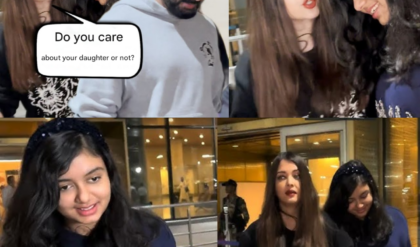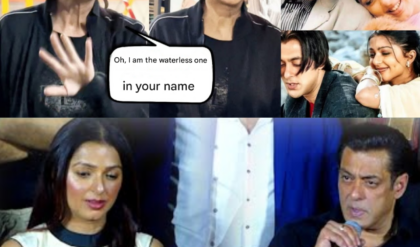Diljit Dosanjh Reply Bajrang Dal Protests Says ‘Kisi Ke Baap Ka Hindustan Thodi Hai’
Diljit Dosanjh Fires Back at Bajrang Dal Protests with Defiant Response: ‘This Isn’t Anyone’s Father’s India’
Diljit Dosanjh, the popular Punjabi singer and actor, is no stranger to controversies, but his recent exchange with the Bajrang Dal has certainly caught the attention of the masses. In a fiery response to protests led by the right-wing group, Diljit stated, “Kisi ke baap ka Hindustan thodi hai” (This isn’t anyone’s father’s India). This bold remark has stirred a mix of support, anger, and discussions across social media, with people weighing in on his stance, the larger issue at hand, and what it means for freedom of speech and expression in India.
The Controversy: What Happened?
The incident occurred after Bajrang Dal, a right-wing Hindu organization, protested against Diljit Dosanjh’s participation in an event that they deemed inappropriate. The protests centered around the artist’s presence at a function that they felt went against their ideological beliefs. In response to the uproar, Diljit, known for his unapologetic attitude and outspoken nature, decided to address the protests directly.
The singer’s retort, “Kisi ke baap ka Hindustan thodi hai,” is a direct and bold challenge to those attempting to control or restrict individual freedoms in India. His comment, which translates to “This isn’t anyone’s father’s India,” suggests that no group or individual has the power to dictate the course of the nation or impose their views on others. This remark reflects his belief in a democratic India, where people are free to express themselves without fear of persecution or intimidation.
The Message of Freedom and Identity
Diljit’s statement holds a deeper message about the importance of freedom and democracy. India, as a republic, was built on the principles of diversity, inclusivity, and tolerance. However, in recent years, there has been a growing trend of polarization and attempts to stifle voices that do not conform to the mainstream narrative.
By standing up against Bajrang Dal’s protests, Diljit is making a firm declaration that no group has the right to claim ownership over India or its people. His words are a reminder that India belongs to everyone, regardless of their religion, culture, or political ideology. It is a space for individuals to live their lives freely and express their views without the fear of being silenced or persecuted by anyone, whether they be political groups or organizations.
Diljit, who has always been an advocate for social issues, has faced his fair share of controversies throughout his career. From supporting farmers during the protests to voicing his opinion on issues such as religious tolerance and freedom, he has never backed down from standing up for what he believes in. His recent comment underscores his unwavering commitment to his values.
A Reflection of the Larger Issue in India
Diljit Dosanjh’s comment comes at a time when debates over freedom of speech and expression are at the forefront of India’s socio-political landscape. India, a nation with a rich history of pluralism and diversity, is increasingly seeing divisions based on religion, caste, and ideology. Groups like Bajrang Dal, who claim to be the protectors of Hinduism, have often come under criticism for using violence and intimidation to push their agenda. In this context, Diljit’s remark serves as a critique of such groups’ overreach and an assertion that India is not defined by the narrow views of any one group.
India’s constitution guarantees its citizens the right to freedom of speech, and Diljit’s statement is a defense of this fundamental right. His challenge to Bajrang Dal serves as a reminder that everyone, regardless of their fame or background, has the right to live in a society where they can voice their opinions freely without fear of censorship.
A Response to Growing Intolerance
In recent years, India has witnessed a rise in the number of protests, public boycotts, and even violent clashes fueled by ideological differences. From Bollywood celebrities to social media influencers, it seems that no one is exempt from the scrutiny of extremist groups. Diljit Dosanjh’s response to Bajrang Dal’s protests represents the growing frustration of individuals who feel that their rights are being eroded by such groups.
The message of “Kisi ke baap ka Hindustan thodi hai” resonates deeply with those who believe in secularism, equality, and freedom of expression. It is a statement of resistance against the forces of intolerance that threaten the fabric of Indian democracy. Diljit’s response is a call for individuals to unite against divisiveness and reclaim India as a country where everyone can coexist peacefully, regardless of their differences.
Conclusion: Why Diljit’s Response Matters
Diljit Dosanjh’s retort to Bajrang Dal’s protests is more than just a celebrity’s response to a controversy. It is a timely and necessary reminder of the values that India was built on — freedom, democracy, and inclusivity. By challenging the narrative that certain groups have the power to control India, Diljit is encouraging others to speak out against intolerance and stand up for what is right.
In a country as diverse as India, the idea that anyone could claim ownership of the nation is not only flawed, it is dangerous. Diljit’s bold words challenge us to think critically about our freedoms and what it means to live in a truly democratic society. His defiance in the face of adversity sends a powerful message: India belongs to all its people, and no one group can claim it as their own.
As citizens of a free country, it is our collective responsibility to uphold these values. Diljit’s defiant response is a call to action — to protect the rights of every individual and to ensure that India remains a land of freedom for all.





